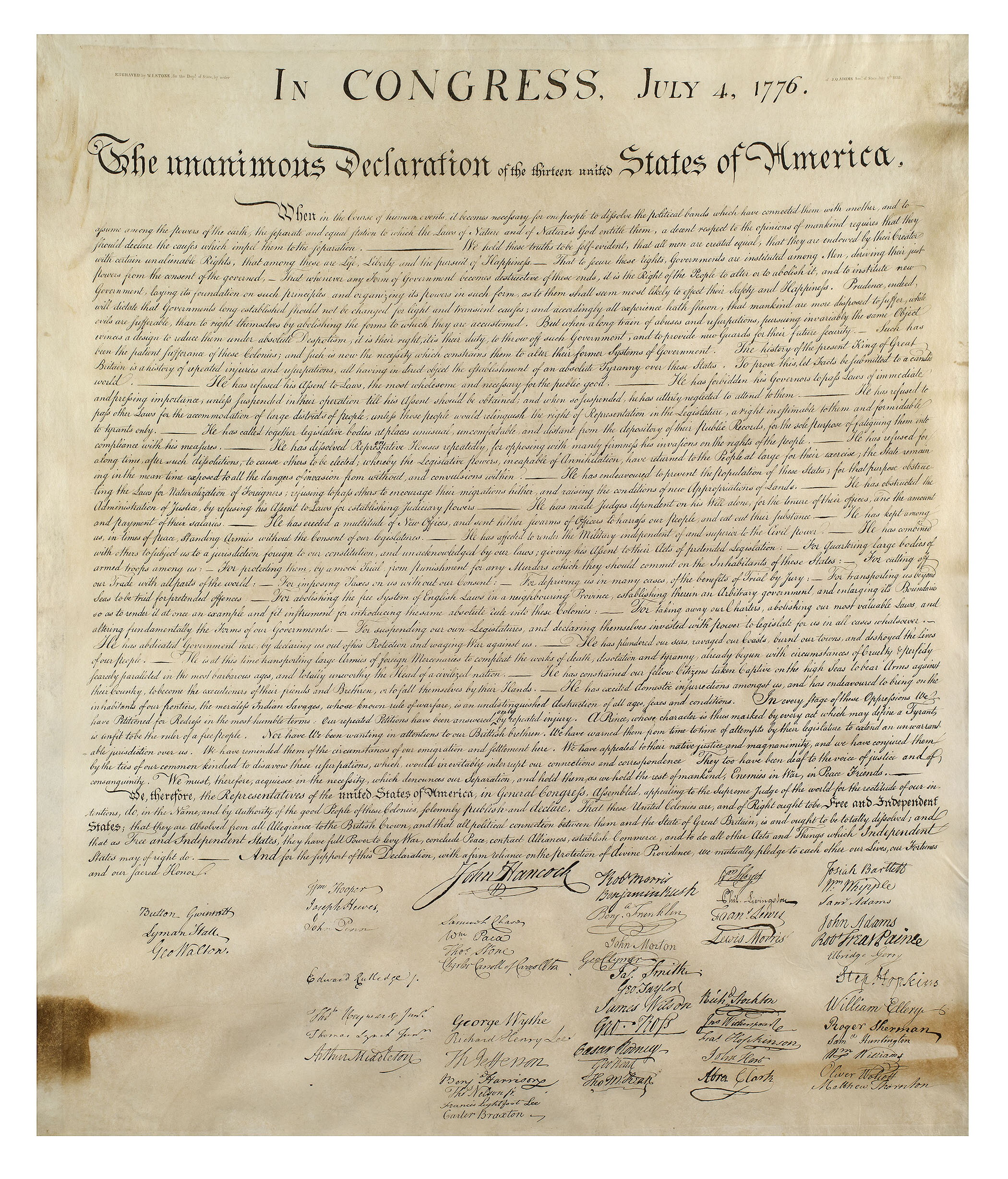In this section, the Institute presents historic documents and publications that tell the story of how the Declaration inspired the birth of the civil rights movement among African Americans within months of its appearance. The Declaration asserted and codified rights that African Americans claimed for themselves as equal participants in the new nation.
Historic Documents
In this essay, Lemuel Haynes, an African American minister and veteran of the Revolutionary War, argues that the rights promised by the Declaration of Independence should be offered to Black people as well as to Whites. While the manuscript of the essay circulated in Haynes’s lifetime, it remained unpublished until 1983.
Presented by a group of African American community leaders to the government of Massachusetts, this text is a landmark in the history of civil rights. The petitioners’ use of the phrase “unalienable right” indicates that Black Americans were inspired by the Declaration of Independence in seeking their own freedom. Petitions such as this one led to the eventual abolition of slavery in Massachusetts in 1783.
“Vox Africanorum,” Letter to the Maryland Gazette (May 15, 1783)
Soon after the Revolution, an anonymous African American using the pseudonym “Vox Africanorum” (Latin for “the voice of Africans”) addressed this plea in the Maryland Gazette to “Ye fathers of your country; friends of liberty and of mankind.” Citing the founding principles of the Declaration of Independence, he writes, “Liberty is our claim . . . Though our bodies differ in color from yours, yet our souls are similar in a desire for freedom.”
Benjamin Banneker, Letter to Thomas Jefferson (August 19, 1791)
Born to free Black parents in Maryland, Benjamin Banneker was the foremost African American intellectual of the Founding Era. He was an accomplished writer, astronomer, mathematician, and city planner. In 1791, Banneker sent this letter to Thomas Jefferson, citing Jefferson’s own words from the Declaration of Independence to protest the continuing enslavement of African Americans.
Publications
History Now 60 (Summer 2021), “Black Lives in the Founding Era”
This landmark issue features sixteen essays by leading historians including Margaret Washington, Lois Horton, Thomas J. Davis, Julie Winch, and James G. Basker. The essays focus on the lives and achievements of African American founders such as Phillis Wheatley, Absalom Jones, Richard Allen, and James Forten, among others.
Slavery and Abolition in the Founding Era: Black and White Voices (GLI, 2021)
Slavery and Abolition in the Founding Era: Black and White Voices, a new publication from the Gilder Lehrman Institute, brings together long-forgotten writings from this period, including twenty-five texts in different genres by more than nineteen different writers, spanning the forty-five-year period from the 1770s to the end of the War of 1812. The writings show that opposition to slavery was surprisingly widespread.
